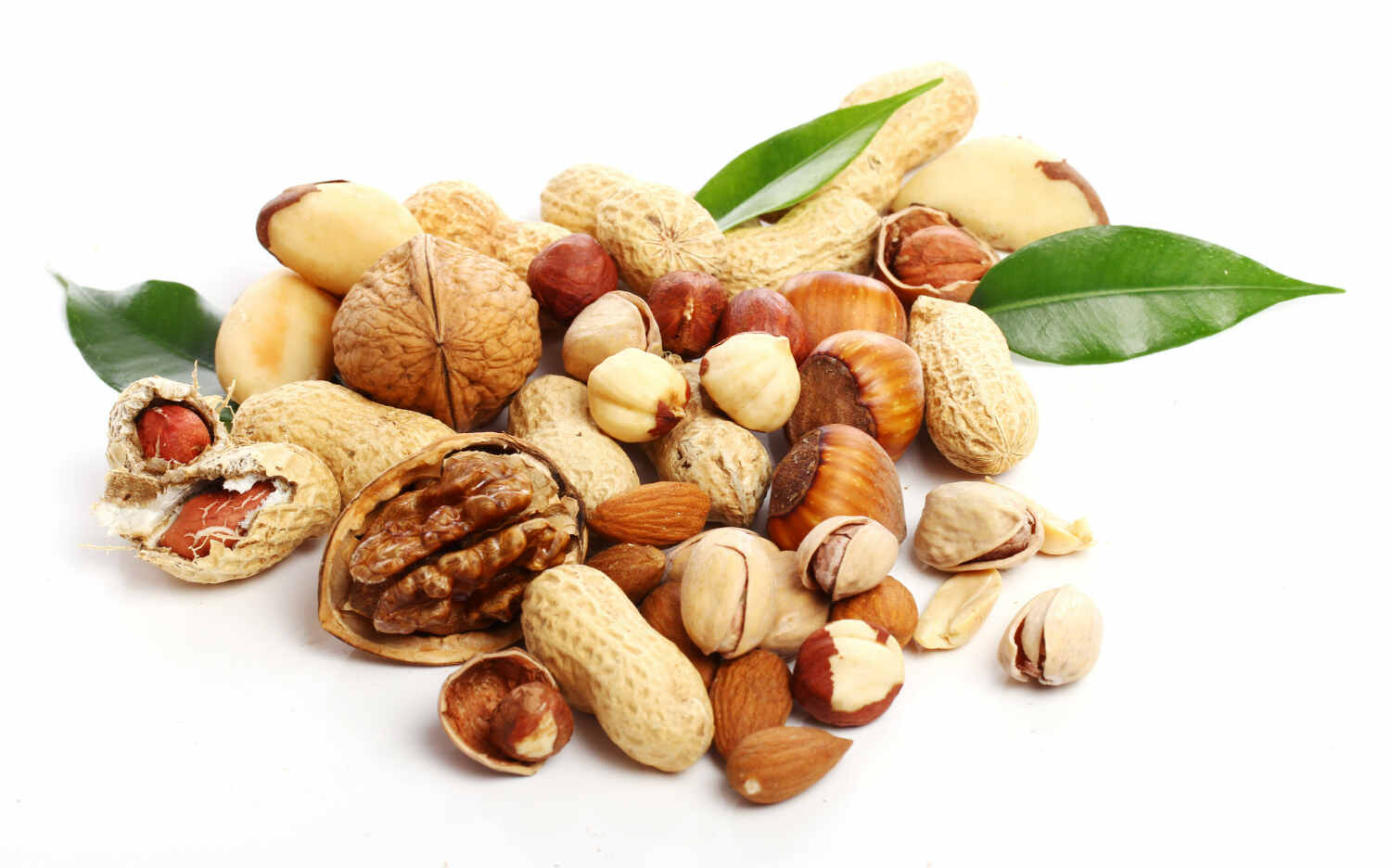When it comes to maintaining a healthy lifestyle, the choice of snacks plays a crucial role. In recent years, there has been a growing trend towards consuming organic foods. One such popular choice is organic nuts. Packed with essential nutrients, organic nuts offer numerous health benefits while being environmentally friendly. In this article, we will explore the world of organic nuts, their advantages, different varieties, and how you can incorporate them into your daily diet. So, let’s dive in!
1. What Are Organic Nuts?
Organic nuts are nuts that are grown without the use of synthetic fertilizers, pesticides, or genetically modified organisms (GMOs). They are produced using sustainable farming practices that prioritize soil health, biodiversity, and the well-being of both farmers and consumers. By eliminating the use of harmful chemicals, organic nuts ensure a healthier and more natural snack option.
Organic nuts are indeed abundant in vitamins, protein, and fiber. When incorporated into our diet, they contribute to overall health, providing satiety and nourishing the body’s skin.
Nuts, such as almonds, walnuts, cashews, and pistachios, are packed with essential nutrients. They are excellent sources of vitamins, including vitamin E, which is renowned for its antioxidant properties that help protect the body’s cells from damage. Vitamin E also plays a crucial role in maintaining healthy skin.
Protein is another valuable component found in nuts. It is an essential macronutrient that aids in building and repairing tissues, promoting muscle growth, and supporting various bodily functions. Incorporating nuts into your diet can be particularly beneficial for individuals following a vegetarian or vegan lifestyle, as nuts are an excellent plant-based source of protein.
Furthermore, nuts are rich in dietary fiber. Fiber is essential for maintaining a healthy digestive system, as it aids in regular bowel movements and can help prevent constipation. It also contributes to a feeling of fullness, which can be advantageous for those seeking to manage their weight or improve satiety between meals.
2. Health Benefits of Organic Nuts
Organic nuts offer a wide range of health benefits, making them a fantastic addition to a balanced diet. Here are some key advantages of incorporating organic nuts into your eating habits:
2.1 Rich in Nutrients
Organic nuts are a nutritional powerhouse, packed with vitamins, minerals, healthy fats, and fiber. They are an excellent source of protein and are rich in essential minerals such as magnesium, phosphorus, and zinc. Additionally, they provide heart-healthy monounsaturated fats and omega-3 fatty acids, promoting overall well-being.
2.2 Antioxidant Properties
Many organic nuts, such as almonds and walnuts, are loaded with antioxidants. These compounds help fight against oxidative stress, reduce inflammation, and protect the body’s cells from damage caused by harmful free radicals.
2.3 Heart-Healthy
Consuming organic nuts as part of a balanced diet has been associated with a lower risk of heart disease. The monounsaturated and polyunsaturated fats found in nuts help lower bad cholesterol levels and improve heart health.
2.4 Weight Management
Despite their relatively high caloric content, organic nuts can actually aid in weight management. The combination of healthy fats, fiber, and protein in nuts helps promote feelings of fullness and satisfaction, reducing the likelihood of overeating.
3. Popular Varieties of Organic Nuts
Organic nuts come in various types, each with its own unique flavor and nutritional profile. Let’s explore some of the most popular varieties:
3.1 Almonds
Almonds are one of the most widely consumed organic nuts. They are rich in vitamin E, magnesium, and healthy fats. Almonds make a versatile snack and can be enjoyed on their own or added to salads, yogurt, or baked goods.
3.2 Walnuts
Walnuts are known for their distinctively earthy flavor. They are an excellent source of omega-3 fatty acids, which are beneficial for brain health. Walnuts are great for snacking, and their slightly bitter taste pairs well with both sweet and savory dishes.
3.3 Cashews
Cashews have a buttery and creamy texture that makes them a favorite among nut enthusiasts. They are a good source of healthy fats, magnesium, and vitamin K. Cashews can be enjoyed as a standalone snack or used in various recipes, including stir-fries and vegan cheese alternatives.
3.4 Pistachios
Pistachios are not only delicious but also a good source of protein and fiber. They contain antioxidants, such as lutein and zeaxanthin, which promote eye health. Pistachios are perfect for snacking, and their vibrant green color adds a visual appeal to any dish.
4. Incorporating Organic Nuts Into Your Diet
Now that you are familiar with the health benefits and popular varieties of organic nuts, it’s time to explore how you can incorporate them into your daily diet. Here are some simple and creative ideas:
4.1 Snack Time
Enjoy a handful of organic nuts as a quick and nutritious snack between meals. Keep a small container of mixed nuts at your desk, in your bag, or in the car for convenient snacking on the go.
4.2 Breakfast Boost
Sprinkle chopped organic nuts, such as almonds or walnuts, onto your morning oatmeal or yogurt to add a satisfying crunch and extra nutrients. You can also blend nuts into smoothies or use nut butter as a spread on whole-grain toast.
4.3 Culinary Delights
Experiment with incorporating organic nuts into your cooking and baking. Add crushed pistachios to salads or use them as a flavorful crust for baked chicken or fish. Cashews can be transformed into creamy sauces or vegan cheese alternatives. Get creative and let your taste buds guide you!
Conclusion
Organic nuts are not only delicious but also offer a myriad of health benefits. By choosing organic varieties, you ensure that you are consuming nuts grown without harmful chemicals, supporting your well-being and the environment. From almonds to cashews, there is a wide range of organic nuts to explore and incorporate into your diet. So, make the switch to organic nuts today and enjoy a healthy and sustainable snacking option.
FAQs (Frequently Asked Questions)
Q1. Are organic nuts more expensive than conventional nuts?
A. Organic nuts tend to be slightly more expensive than their conventional counterparts. This is primarily because organic farming practices require more labor-intensive methods and adhere to stricter regulations. However, the additional cost is a reflection of the quality, environmental sustainability, and health benefits associated with organic nuts.
Q2. Can organic nuts help with weight loss?
A. While organic nuts are relatively high in calories, their combination of healthy fats, fiber, and protein can actually aid in weight management. The satiating effect of nuts helps curb cravings and keeps you feeling fuller for longer, reducing the likelihood of overeating.
Q3. Are organic nuts free from pesticides?
A. Yes, organic nuts are grown without the use of synthetic pesticides. Instead, organic farmers use natural methods to control pests and maintain the health of their crops. This ensures that the nuts are free from harmful chemical residues and are a safer choice for consumers.
Q4. Can I consume organic nuts if I have nut allergies?
A. If you have a nut allergy, it is essential to consult with your healthcare provider before consuming any nuts, including organic varieties. Nut allergies can range from mild to severe, and it is crucial to understand your specific allergy and any potential risks.
Q5. Where can I purchase organic nuts?
A. Organic nuts can be found in various places, including health food stores, specialty grocery stores, and online retailers. Look for certified organic labels to ensure that the nuts meet the necessary standards and have been grown and processed following organic practices.


